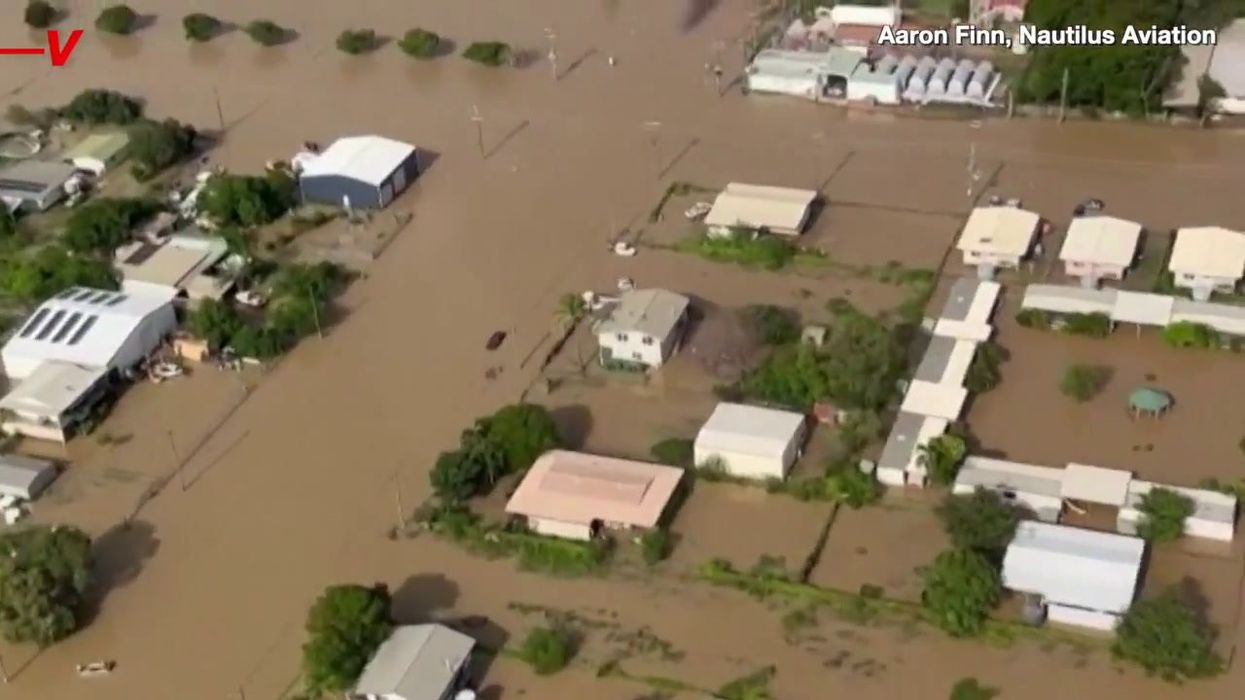It sounds like something out of a dystopian horror movie: but receding floodwaters in northern Australia have revealed an alarming new danger – crocodiles.
The wide-smiled predators have made their way into the town of Ingham in Queensland after torrential rain broke river banks, inundated fields and cut off towns.
The reptiles have apparently been using the floodwaters to travel to different parts of the region and search for food.
The problem is, now that things are drying up, the crocs are still around.
Sign up for our free Indy100 weekly newsletter
“Some crocodiles love it when it rains and they use the water’s currents to travel; they’re very smart animals,” Toby Millyard, crocodile researcher at Australia Zoo in Queensland, said told Reuters.
“But they’re very easy to stay away from. As long as you’re not in the water or standing by the edge, then you should be fine.”
Meanwhile, over in the remote town of Burketown, around 1,300 miles northwest of Brisbane, almost 100 people were evacuated to higher ground following a record-breaking flood of The Gregory River.

Local police warned residents to limit their movements owing to the risk of crocodile encounters.
"Due to the current conditions, it is unsafe for displaced people to return to their homes and police remind residents to limit movement in the flood water due to unseen hazards and recent crocodile sightings," they said.
On Monday, Queensland police shared footage of a baby kangaroo being saved from croc-infested floodwaters.
They said a pilot was flying over Burketown when he spotted "two very large crocs”, prompting the rescue operation.
Australia is home to two species of crocodile – fresh and saltwater. The latter, also known as the estuarine crocodile, poses a significantly higher risk to humans than freshwater crocodiles.
Since 1975, there have been 47 crocodile attacks in Queensland alone, The Independentreports. Sixteen of these were fatal.
Have your say in our news democracy. Click the upvote icon at the top of the page to help raise this article through the indy100 rankings.














